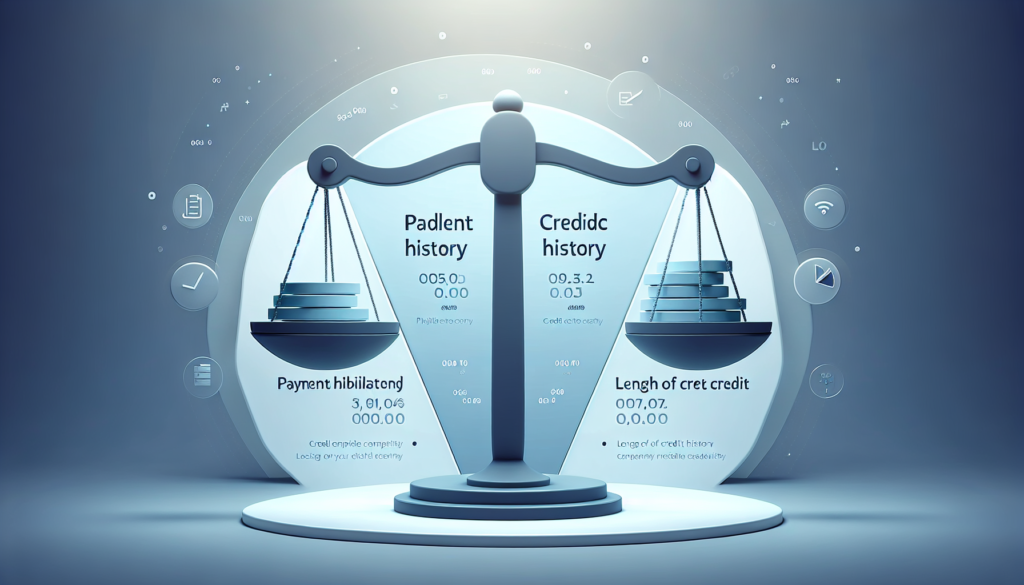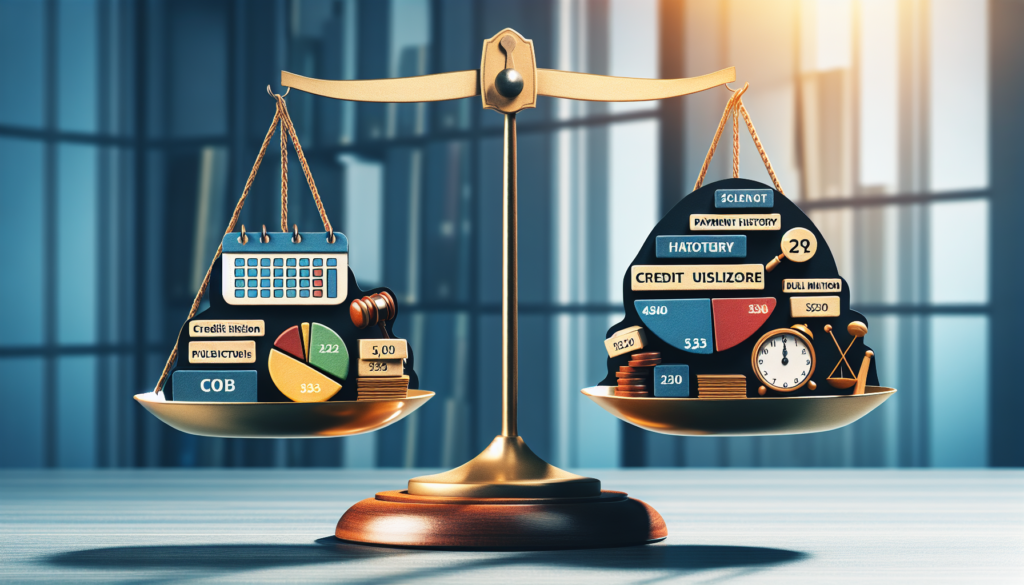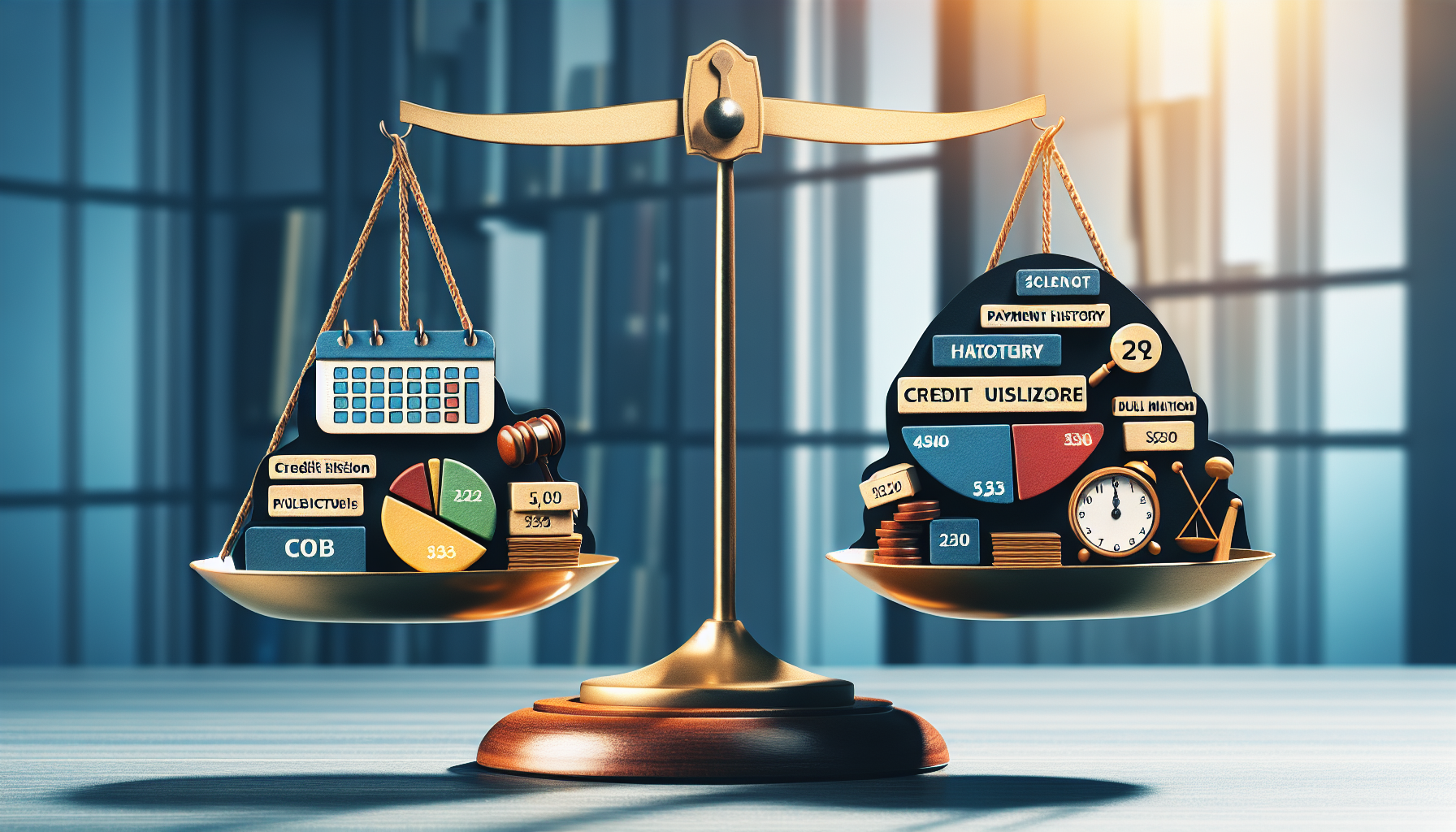Hey there! Did you know that your business credit score plays a crucial role in determining the financial health of your company? Whether you’re a small startup or an established business, understanding the factors that influence your credit score is essential for making informed financial decisions. From payment history to credit utilization, several key elements can significantly impact your score. In this article, we’ll explore these factors in depth, giving you a better understanding of what goes into determining your business credit score. So, let’s dive right in and uncover the secrets to building a strong credit profile for your business!

Payment History
Timely Payments
Your payment history plays a crucial role in determining your business credit score. Timely payments are a positive reflection of your financial responsibility. When you consistently make on-time payments towards your credit obligations, it demonstrates to lenders and creditors that you are a reliable borrower. This can positively impact your credit score and improve your credibility in the eyes of potential lenders.
Late Payments
Late payments can have a negative impact on your business credit score. When you fail to make payments by their due dates, it can be seen as a sign of financial instability and may lead to a decrease in your credit score. Late payments can show a lack of financial responsibility and make lenders wary of extending credit to your business. It is essential to prioritize making timely payments to avoid any negative consequences on your credit score.
Defaulted Payments
Defaulting on payments is the most detrimental factor to your business credit score. When you fail to repay your debts as agreed upon, it significantly damages your creditworthiness. Defaulting on payments not only leads to a decrease in your credit score but also makes it incredibly difficult to secure credit in the future. Lenders and creditors perceive defaulting as a high-risk behavior and are unlikely to extend credit to businesses with a history of defaulted payments.
Credit Utilization
Utilization Ratio
The utilization ratio refers to the percentage of your available credit that you are currently using. It is an important factor in determining your business credit score. A high utilization ratio can indicate financial strain and might negatively impact your credit score. As a general rule, it is advisable to keep your credit utilization ratio below 30% to maintain a healthy score. It is crucial to manage your credit responsibly and avoid maxing out your available credit to enhance your creditworthiness.
Available Credit
Your available credit plays a significant role in your credit score. The amount of credit available to your business shows lenders and creditors how much trust they can place in your financial stability. Having a higher available credit limit can positively impact your credit score as it demonstrates that you have access to sufficient funds to meet your financial obligations. It is essential to maintain a healthy balance between your credit utilization and available credit to improve your creditworthiness.
Over-utilization
Over-utilization occurs when you exceed your available credit limit or use a significant portion of your credit line. This can negatively impact your business credit score as it suggests a high risk of defaulting on payments. Lenders are more likely to view businesses that are over-utilizing their credit as financially unstable and may be hesitant to extend further credit. It is important to keep your credit utilization in check and avoid over-utilizing credit to maintain a favorable credit score.
Credit Age
Length of Credit History
The length of your credit history refers to the amount of time your business has been utilizing credit. A longer credit history can positively impact your credit score as it provides a more comprehensive overview of your financial responsibility. Lenders and creditors generally prefer businesses with a longer credit history, as it demonstrates stability and experience in managing credit efficiently. If you are just starting to establish your business credit, it is important to maintain a consistent track record of responsible credit usage to build a positive credit history over time.
Oldest Active Trade Line
The age of your oldest active trade line is another factor that affects your business credit score. The older the trade line, the more weight it carries in determining your creditworthiness. An old and well-maintained trade line demonstrates a long history of credit usage and repayment. This can positively influence your credit score and improve your chances of securing credit in the future. It is important to maintain your oldest active trade line and ensure timely payments to maximize its positive impact on your credit.
Average Age of Accounts
The average age of your accounts reflects the age distribution of your credit accounts. It is calculated by adding the ages of all your accounts and dividing it by the total number of accounts. A higher average age of accounts can have a positive impact on your business credit score. It showcases a long-term commitment to managing credit responsibly. It is advisable to carefully manage your accounts and avoid closing older accounts unless necessary, as it can decrease your average account age and potentially lower your credit score.

Public Records
Bankruptcies
Having a bankruptcy on your business credit report significantly impacts your credit score. Bankruptcies are considered one of the most severe negative marks on your credit history. They indicate a substantial inability to repay debts and can lead to a substantial decrease in your creditworthiness. It is important to avoid bankruptcy whenever possible, as it can have long-lasting consequences for your ability to obtain credit in the future.
Tax Liens
Tax liens can have a detrimental impact on your business credit score. When you fail to pay your taxes, the government may place a lien on your business, stating that they have a right to seize your assets if you do not pay the outstanding taxes. Tax liens are seen as a serious red flag by lenders and creditors, suggesting financial instability and a higher likelihood of defaulting on payments. It is vital to prioritize fulfilling your tax obligations to maintain a positive credit history.
Judgments
Judgments occur when a court orders you to pay a debt to a creditor. They can have a negative impact on your business credit score and indicate that you have not fulfilled your financial responsibilities. Judgments show potential lenders and creditors that you have been taken to court for non-payment, which raises concerns about your creditworthiness. It is essential to address judgments promptly and make the necessary payments to mitigate their negative effects on your credit.
Collections
Collections appear on your business credit report when a creditor assigns your unpaid debt to a collection agency. They signify that you have failed to repay your debts and can have a negative impact on your credit score. Lenders and creditors view collections as evidence of financial irresponsibility and a higher risk of defaulting on payments. It is crucial to address collections promptly by either paying off the debt or negotiating a suitable resolution to limit the damage to your credit score.
Credit Inquiries
Hard Inquiries
Hard inquiries occur when you apply for credit, and the lender or creditor checks your credit report as part of the application process. These inquiries can have a temporary negative impact on your business credit score. Multiple hard inquiries within a short period can be seen as a sign of financial distress or a high reliance on credit, making lenders cautious about extending further credit. It is important to be strategic and minimize unnecessary hard inquiries to maintain a healthy credit score.
Soft Inquiries
Soft inquiries occur when your credit report is accessed for reasons other than a credit application, such as a background check or pre-approved offers. These inquiries do not impact your credit score. Soft inquiries are necessary for various routine purposes, such as monitoring your own credit, and lenders do not view them as a negative factor when assessing your creditworthiness.
Multiple Inquiries
Multiple inquiries occur when you have several hard inquiries on your credit report in a short period, typically within a few weeks. This can raise concerns among lenders and creditors about your financial stability and ability to manage credit responsibly. Multiple inquiries are often associated with a higher risk of defaulting on payments. It is advisable to be cautious when applying for credit and limit the number of inquiries to maintain a favorable credit profile.
Excessive Inquiries
Excessive inquiries refer to a consistently high number of credit inquiries over an extended period. Having a history of excessive inquiries can negatively impact your business credit score and raise concerns about your financial stability. Consistently seeking credit from various sources demonstrates a reliance on credit and can unsettle lenders. It is important to manage your credit applications judiciously and avoid excessive inquiries to maintain a positive credit history.
Business Size and Industry
Number of Employees
The size of your business, as reflected in the number of employees, can influence your credit score. Lenders often consider the number of employees a factor in assessing a business’s creditworthiness. A larger workforce can suggest greater stability and growth potential, positively impacting your credit score. However, it is important to note that the influence of the number of employees on your credit score may vary depending on the industry and other factors.
Annual Revenue
Your business’s annual revenue is a critical factor in determining your creditworthiness. Lenders typically assess your ability to repay debts based on your revenue. A higher annual revenue can improve your credit score as it demonstrates your business’s financial strength and capacity to meet its financial obligations. It is important to accurately estimate your annual revenue and maintain a healthy financial performance to positively impact your creditworthiness.
Industry Risk
The industry in which your business operates can impact your credit score. Certain industries may be perceived as higher risk than others due to factors such as market volatility or regulatory challenges. Lenders take these industry-specific risks into consideration when assessing your creditworthiness. It is important to be aware of the industry risk associated with your business and take steps to mitigate potential negative impacts on your credit score.
Debt-to-Income Ratio
Total Debt
The total debt of your business is a crucial factor in determining your creditworthiness. Lenders assess your total debt to evaluate your ability to manage your financial obligations. A high total debt relative to your income can negatively impact your credit score, as it can suggest a higher risk of defaulting on payments. It is important to manage your debt responsibly, avoid excessive borrowing, and ensure you have a feasible plan for repayment to maintain a favorable credit profile.
Net Income
Your business’s net income is an essential component of your creditworthiness. Lenders evaluate your net income to assess your ability to meet your financial obligations. A higher net income can positively impact your credit score, as it indicates a healthier financial position and a lower risk of defaulting on payments. It is important to monitor and manage your net income consistently to demonstrate financial stability and improve your creditworthiness.
Financial Statements
Income Statement
Your business’s income statement provides a snapshot of your revenue, expenses, and profitability over a specific period. Lenders often review income statements to assess your business’s financial performance and viability. A positive or improving income statement can have a positive impact on your credit score, as it demonstrates a healthy financial position and adequate cash flow. It is important to regularly maintain accurate and up-to-date income statements to enhance your creditworthiness.
Balance Sheet
A balance sheet provides an overview of your business’s assets, liabilities, and equity at a specific point in time. Lenders consider balance sheets when evaluating your business’s financial stability and creditworthiness. A well-managed balance sheet, with a healthy ratio of assets to liabilities, can positively impact your credit score. It showcases your ability to manage your resources and meet your financial obligations. Regularly updating and reviewing your balance sheet is crucial to maintaining a strong credit profile.
Credit Diversity
Types of Credit
The types of credit your business utilizes can impact your credit score. A diverse mix of credit, such as loans, credit cards, and lines of credit, can demonstrate financial flexibility and responsible credit management. Having various types of credit and managing them well can positively influence your credit score. It is important to carefully consider the types of credit your business needs and ensure responsible utilization to maintain a favorable credit profile.
Mix of Credit
The mix of credit accounts in your business’s credit history is a factor considered by lenders and creditors. A healthy mix of credit accounts, such as installment loans and revolving credit, can contribute to a positive credit score. A diverse credit mix showcases your ability to handle different types of credit obligations responsibly. It is essential to have a balanced mix of credit accounts and manage them effectively to enhance your creditworthiness.
Business Credit Reports
Accuracy of Information
The accuracy of the information contained in your business credit report is crucial for maintaining a healthy credit score. Errors or outdated information can negatively impact your creditworthiness. It is essential to regularly review your business credit reports and dispute any inaccuracies promptly. Ensuring the accuracy of your credit reports can help maintain a favorable credit score and prevent any unwanted negative impact on your creditworthiness.
Negative Information
Negative information on your business credit report, such as late payments or collections, can significantly impact your credit score. Lenders and creditors view negative information as a sign of financial instability and a higher risk of defaulting on payments. It is important to address and rectify any negative information promptly. Timely payment of debts and resolving any outstanding issues can help minimize the negative impact on your credit score and improve your creditworthiness.
Length of Credit Report
The length of your business credit report refers to the time period covered by your credit history. A longer credit history can improve your credit score as it provides a more comprehensive overview of your creditworthiness. Lenders and creditors prefer businesses with longer credit histories, as it demonstrates stability and experience in managing credit. If you are just starting to establish your business credit, it is important to maintain a consistent track record of responsible credit usage to build a positive credit history over time.
Understanding the factors that influence your business credit score is essential for maintaining a healthy credit profile. By prioritizing timely payments, managing credit utilization, maintaining a diverse credit mix, and demonstrating financial stability, you can improve your creditworthiness and enhance your chances of securing credit in the future. Regularly monitoring your credit reports and addressing any issues promptly will also help ensure the accuracy and reliability of your business credit information.

